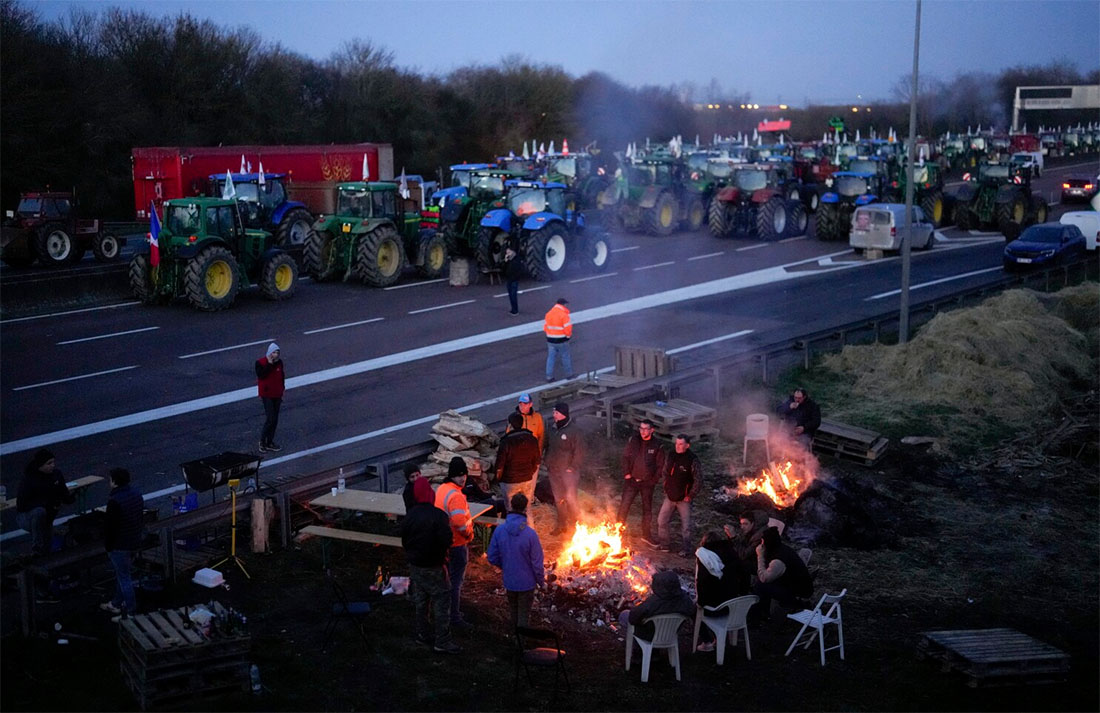
Photo Credit: Getty Images
French farmers launched a new wave of action on Monday to protest a proposed trade pact between the European Union and four South American countries, which they say threatens their livelihoods.
Angry demonstrators staged dozens of rallies across the country, setting up mock gallows and erecting wooden crosses to symbolize the death of French agriculture. The new wave of action came after farmers across Europe including France mounted rolling protests last winter over a long list of burdens they say are squeezing revenue. The French government is leading resistance against ratification of the trade agreement with the Mercosur bloc of Argentina, Brazil, Paraguay and Uruguay that would create the world's largest free-trade zone.
On Sunday, President Emmanuel Macron defended France's resistance as he visited Argentina's President Javier Milei ahead of a G20 summit in Rio de Janeiro. He said France would "continue to oppose" the trade deal. But farmers say Macron and the government should do more.
The FNSEA farming union and Jeunes Agriculteurs ("Young Farmers"), which together represent most farmers in France, backed the protests. The demonstrations were largely symbolic but protesters say they are ready to up the pressure. Around 300 farmers protested in the southeastern town of Le Cannet-des-Maures, where one sign unfurled along a road read: "Stop the promises, start with actions."
"Macron, your agriculture is dying and you are looking elsewhere," another banner said. Local farmers also placed a cross next to a mock gallows with a message reading "France's agriculture in danger". In eastern Lyon, farmers tore down municipal signs and deposited them at the stairs of a museum. The FNSEA and Jeunes Agriculteurs said more than 80 protests were being staged across the country, but no major roads were blocked.
On Sunday, Interior Minister Bruno Retailleau warned farmers there would be "zero tolerance" in the event of "lasting" roadblocks.
The European Union and the four founding members of Mercosur -- Brazil, Argentina, Uruguay and Paraguay -- have been working to make a trade pact between their blocs a reality for 25 years.
















